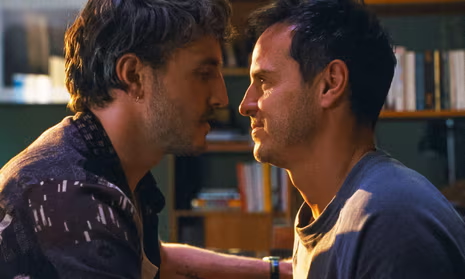Why do we feel nostalgia and does it serve a purpose?
Is indulging in nostalgia actually good for us?
Scrolling social media lately has been, for Gen X at least, a chance to swim in a glittering ocean of nostalgia. Normally, I’ve no time for the rose-tinted spectacles sported by the golden-agers of Facebook – the ones with a tendency to pen terrible poems about the glory days of the 1950s. (“We played on the bombsite and skinned our knees/and all the beds at home had fleas”). But when it’s my generation, which grew up in the ‘70s and ‘80s, nostalgia is a powerful and intoxicating drug. So why do we feel nostalgia?
Back in time with One Day

Ambika Mod as Emma & Leo Woodall as Dexter. Photo: Netflix
One Day, the Netflix adaptation of David Nicholls’ novel about Emma and Dex and their long, ’80s-to-’00s friends-to-lovers arc, blindsided many of us with its pinpoint-accurate depictions of the clothes, music, and attitudes we embraced growing up. From the tragic growing-out perm, to the ‘curtains’ Loaded lad hair, to the glass-brick loo walls and horrific coked-up mega-restaurants of the ‘90s.
Just watching the scene where Dexter is attaining toe-curling levels of dick-ishness shot me back to an evening at The Atlantic bar with braying media types. And the stolen Quaglinos ashtray that lived on my kitchen shelf for years.
The exquisite melancholy of the past
After that briskly refreshing plunge into the past, I went to see All of Us Strangers, a deeply melancholic film about isolation and loneliness. It sees a middle-aged Andrew Scott suddenly able to visit the ghosts of his parents who died in 1987. A world of patterned acrylic jumpers, Harvest-ware toasters, unquestioned indoor smoking, and Top of the Pops on the boxy living room telly.

All of Us Strangers, starring Andrew Scott and Paul Mescal
Not only was it a devastatingly sad film, it also triggered a tsunami of memories of what most suburban kitchens looked like before ‘lifestyle’ got involved. And how back then, dads were not only permitted but encouraged to keep emotions to themselves. Nobody in my family ever said, “love you,” or “to the moon and back.” It was just assumed that you loved each other, and you’d simply get on with arguing about homework and staying up to watch Juliet Bravo.
The midlife nostalgia-fest was completed with the recent news that The Body Shop has gone into liquidation. My entire timeline filled with fond images of dewberry oil, ice blue shampoo and fuzzy peach perfume, as if a Laura Ashley washbag had exploded all over it.
As a result, I’ve been thinking heavily about nostalgia. Why we feel it, what’s it good for – even whether it can be bad for us.
Read more: Joe McGann on finding love in later life
So why do we indulge in nostalgia?
Does harking back to a half-forgotten past encourage us to imagine it was so much better back then, and to compare our current circumstances unfavourably? Or is it a positive way of linking our modern, jaded selves to the people we used to be long ago? In my case, an insecure teen who read Sweet Valley High books and dreamed about the boy in art class who had Levis and floppy hair. (Spoiler: he never noticed me, and in retrospect, was quite possibly gay).
Nostalgia is a longing or yearning for something that has happened in our past, says psychotherapist Karen Hartley. “The feeling of nostalgia is real and is triggered by something that reminds you of previous times. It often becomes most prominent in hard or uncertain times.”
…is it a positive way of linking our modern, jaded selves to the people we used to be long ago?
The word itself is a fusion of the Greek words for homecoming and pain; and was first used by a 17th century Swiss doctor who considered the condition a mental health disorder. Nowadays, we tend to view nostalgia with amused warmth, happily following ‘I had a ‘70s childhood’ groups on Facebook, and sighing over blurry Bananarama videos. (“You see, pop stars just looked like ordinary girls back then… I actually had those pixie boots…”).
Do we remember only the good bits?
Research has found that memory tends to accentuate the positive and dismiss the negative. So we forget the casual racism, sexism, homophobia, and unemployment of the ‘70s and ‘80s, in favour of recalling fewer cars on the streets, and fun times at the roller disco.
According to a study published in science journal Nature, nostalgia can reduce the cortisol released by trauma and protect against stress and anxiety. Interestingly, the study from the University of California also found that people tended to feel more nostalgic when with family and friends, or around food. And that people leaned into nostalgia when they felt depressed – perhaps unsurprisingly.
“It’s common for people to perceive the past as a simpler, better time…”
The temptation to dwell on happier times is stronger when things in the present are not so enjoyable. “We go through more nostalgic periods with age, as we encounter more triggers,” says Karen Hartley. “People might feel lonelier the older they get as well as more ‘homesick’ for lost loved ones.”
Psychotherapist Kamalyn Kaur explains, “It’s common for people to perceive the past as a simpler, better time, regardless of whether that perception is entirely accurate or not. This can happen when the brain forgets the challenges and complexities of the past, remembering and focusing only on the positives.”
So we think about the dewberry oil and forget about the school bully, or we remember our children as adorable babies and forget the agony of sleepless nights.
So a dose of nostalgia can be beneficial?
“People do it all the time, especially when it comes to relationships,” agrees Kaur. “You leave someone because they aren’t good for you but then all you can think about is all the ‘good times’.”
“As we age, we may become nostalgic for our youth or a different stage of our life – often a stage that we relate to as representing growth, exploration, or less responsibility.”
Often, she goes on to say, we feel nostalgia for a time when we experienced a sense of possibility – which is why our teenage years are such a nostalgia trigger. “As we age, we may become nostalgic for our youth or a different stage of our life – often a stage that we relate to as representing growth, exploration, or less responsibility.” It can also be a response to current stress, she adds. “When facing a difficult, complicated, or challenging time, it’s human nature to look back at a simpler, easier, and carefree time in our lives for mental relief.”
So nostalgia isn’t necessarily bad, as long as we don’t end up dwelling in an imagined past for too long. Thinking of happy memories can help put current troubles into perspective, says Kaur. “Nostalgia can evoke positive emotions; help with mood enhancement; and in some cases, be a tool for managing stress, as it allows you to ‘escape’ from your current reality.”
Although looking back, I’m not sure I truly want to escape to a time when TFI Friday was the biggest show on TV, Loaded was the best-selling mag, and ‘gay’ was a playground insult. One good thing about nostalgia – it’s a useful reminder that sometimes, the present isn’t all that bad.

Flic Everett is a Mancunian writer who now lives in a cottage in the beautiful West Highlands with her patient husband and two deranged cocker spaniels. She still misses Manchester, and returns like a homing pigeon every month to see family and friends. She spends a lot of time writing on trains.



Leave a comment